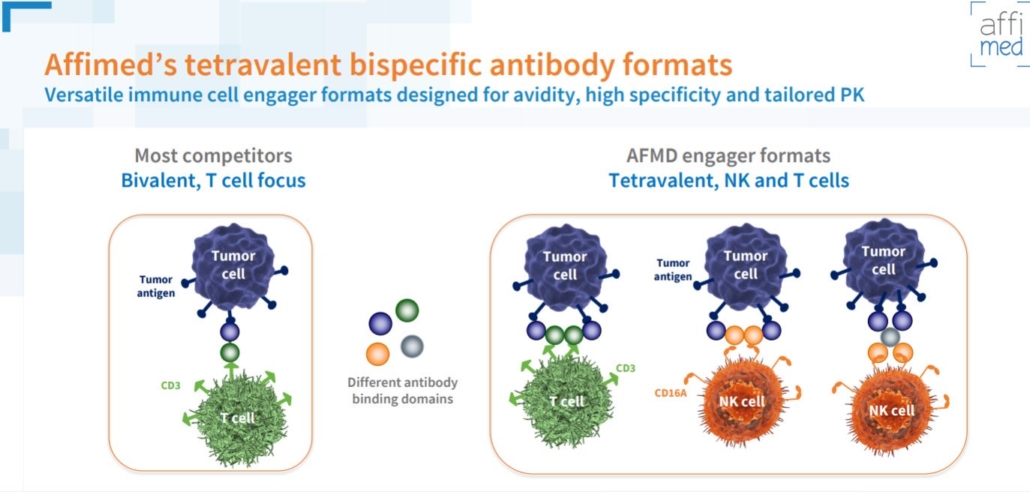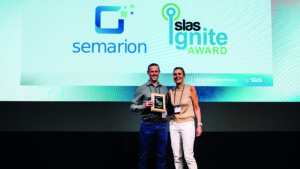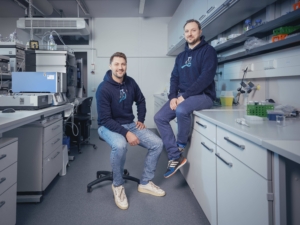
Affimed halts trial after patient death and SAEs
Genentech's new partner Affimed NV has halted two blood cancer programmes with its tetravalent bispecific T cell engager AFM11 after a death and two cases of severe neurotoxicity occured in Phase I trails.
Following the announcement, Affimed’s stocks dropped by 30%. Affimed’s tetravalent bispecific antibody-generating ROCK platform was a main driver of a potential $5bn licence deal signed most recently with Roche’s US arm Genentech.
The death and two severe neurotoxicities occured at the highest dose of AFM11 (2CD19 x 2CD3) in two Phase I dose escalation trials enrolling 33 patients with the blood cancers ALL (acute lymphoblastic leukemia) and NHL (Non-Hodgkin Lymphoma). Though, the company didn’t publish any details describing what exactly happened, its no secret that modalities that link effector T cells to the B-cell target CD19 can trigger neurotoxic SAEs: Amgen’s bispecific T cell engager blinatumomab has a black box warning both for cytokine release syndrome (CRS) and neurotoxicity. Furthermore, approved CAR-T cell therapies from Gilead Sciences and Novartis targeting the CD19 antigen on B cells induce CRS and show 15-30% neurotoxic SAEs.
While CRS can be managed with Roche’s FDA approved IL6 receptor antagonist tocolizumab, another cytokine blocker, IL-1 blocker anakinra from SOBI AB, was recently shown to prevent CD19 x CD3-induced neurotoxicities and CRS in preclinical models.
For Genentech, who paid $95m upfront to the Dutch-German antibody specialist, the clinical halt is no good sign. Affimed’s tetravalent bispecific antibodies were thought to complement Roche’s clinical portfolio of BITEs (RG6026, RG7828) and IgG1-like CrossMab bispecifics (ERY97/Chugai; RG7802) as an easy to manufacture alternative to the costly CAR-T cell therapies of competitors such as Novartis, Gilead Sciences or Cellgene.
However, Affimed’s clinical halt does not affect AFM13, a CD30 x CD16A-TandMab that links NK cells to the CD30 target on tumours, which seems a promising approach to activate cells of the innate immune system to break tumour tolerance. NK cells contribute to the formation of tumour-killing Neutrophil Extracellular Traps (NETs). NETs, however, most recently were shown in mice to contribute to distant metastases and awake resting cancer cells.


 SLAS - Alexandra Csuport Photography
SLAS - Alexandra Csuport Photography Phabioc GmbH
Phabioc GmbH